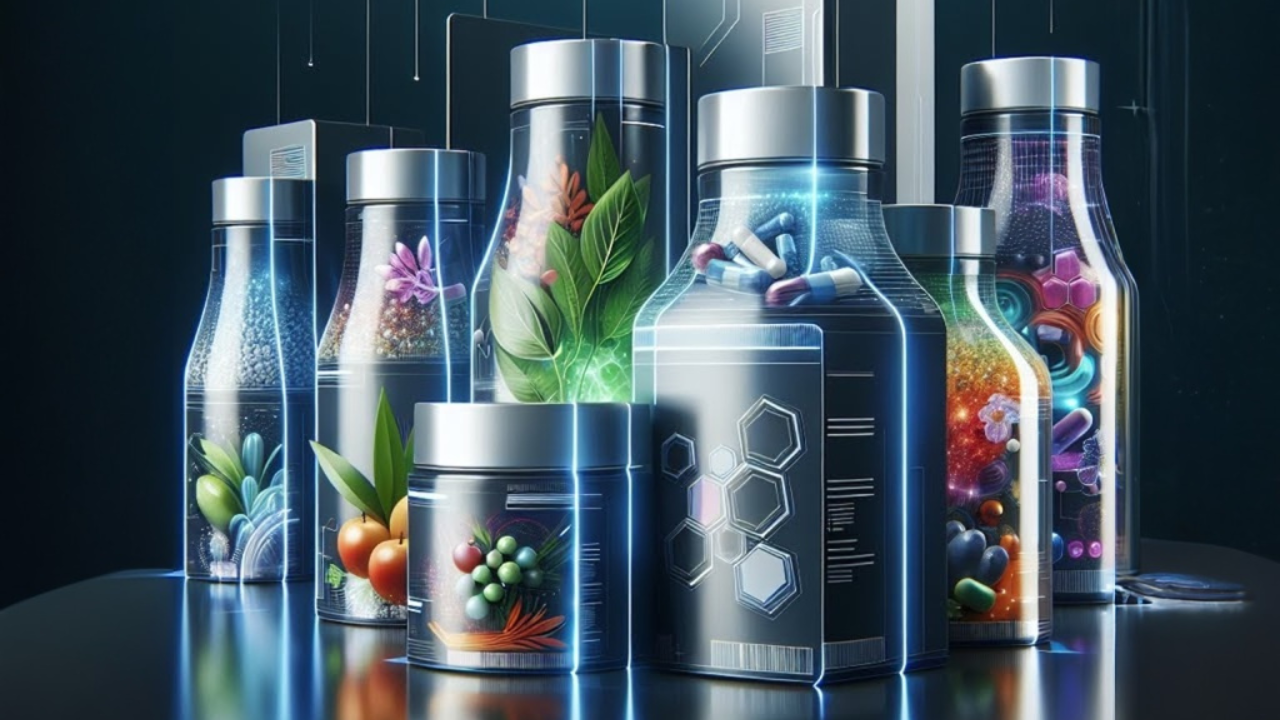
Plant Cell Culture Powers Next-Gen Nutraceuticals
The dietary supplement industry is experiencing significant growth fueled by a surge in consumer demand for high-quality, sustainable, and nutrient-rich products. The US dietary supplement market was valued at $53.58 billion in 2023 and is projected to grow at a compound annual growth rate (CAGR) of 5.7% over the next five years as consumers increasingly turn to supplements for their health and wellness needs.
This growth is driven by an aging population, heightened awareness of preventive healthcare, and a demand for sports nutrition supplements. Health-conscious consumers are seeking products that offer comprehensive benefits such as immune support, cognitive function, and enhanced overall wellness. Supplements that improve sleep quality, reduce stress, and increase mental focus are also in high demand.
The Role of Phytonutrients and Bioactive Compounds in Supplement Quality
Ultra Processed Foods (UPFs) are crafted for convenience and sensory appeal. They are designed to be irresistible. But they are packed with sugar, salt, fat, and empty calories; and they lack the vitamins, minerals, and bioactives that promote health. In other words, these foods often fall short in delivering essential nutrients. What’s more, they exacerbate dietary imbalances and increase the risk of chronic conditions. Plant cell cultivation offers a transformative way to address these deficiencies and redefine the future of processed foods.
Today’s Supply Chain Challenges are Exacerbated by Environmental Conditions
Sustainably sourcing quality botanicals has been hindered by climate change, agricultural variability, contamination, adulteration and other factors. For example, a September 2024 investigation by Consumer Reports found 1 in 3 ground cinnamon products had elevated lead levels. These numbers triggered a recall in New York and prompted the Food and Drug Administration (FDA) to issue three alerts warning consumers about lead in certain brands of cinnamon products. And crop diseases like Alternaria leaf spot disease led to supply shortages for ashwagandha in 2024.
Plant Cell Culture: A Revolutionary Approach for Sustainable Ingredients
Plant cell culture is one promising solution to these supply chain challenges. Unlike traditional agricultural methods, plant cell culture involves growing plant cells in controlled bioreactors to produce bioactive ingredients. This plant-based biotechnology provides consistency—eliminating the variability caused by weather conditions, soil quality, and pests—and ensures a reliable supply of contaminant-free supplements.
The beauty of plant cell culture lies in its ability to replicate the full spectrum of phytonutrients found in nature without the unpredictability and contamination risks of traditional farming methods. For example, pesticide contamination is a known issue with conventionally grown plants, as seen in the 2024 Yogi Tea recall. We can ensure supplement quality and maintain the potency and purity of plant-based bioactives by growing plant cells in a sterile controlled environment.
The Benefits of Plant Cell Culture for the Nutraceutical Industry
Ensuring the consistency, purity, and effectiveness of ingredients is more important than ever as the demand for high-quality dietary supplements continues to rise. Traditional farming methods often struggle to meet these standards, leading to inconsistencies in product quality and concerns over environmental impact. Plant cell culture offers a groundbreaking solution by providing a controlled, resource-efficient way to produce potent bioactive compounds.
- Consistency and Quality: Plant cell cultures are grown in bioreactors with carefully monitored conditions, ensuring that supplement quality is never compromised. This method guarantees a consistent, high-purity supply of bioactive ingredients free from contaminants such as pesticides and heavy metals.
- Sustainability: Traditional farming often requires large amounts of land, water, and pesticides. In contrast, plant cell culture uses significantly fewer resources, making it a far more sustainable solution for producing plant-based innovation. This technology reduces the environmental footprint of supplement production while maintaining product integrity.
- Accessibility to Rare and Expensive Ingredients: Botanicals from some plants, like ginseng and saffron, are difficult to cultivate and harvest due to their long growth cycles and stringent environmental demands. Plant cell culture enables the production of these rare and valuable ingredients efficiently, making it possible to meet the growing demand for potent phytonutrients in dietary supplements.
- Full-Spectrum Bioactives: Advanced metabolomics and transcriptomics screening techniques allow us to predict and control plant cells. This knowledge allows plant cell culture to produce the full range of bioactive compounds present in plants and ensures that the nutraceutical industry can deliver supplements that provide a broad spectrum of health benefits. In total, plant cell cultivation offers consumers the full power of plant-based bioactives.
Case Study: Blueberries and Antioxidants
Blueberries are renowned for their antioxidant properties, primarily due to anthocyanins. However, traditional farming methods often produce berries with varying levels of these beneficial compounds—levels that depend on soil conditions and climate. Plant cell culture provides a solution by producing these antioxidants in a controlled environment and guaranteeing a consistent, high-quality source of bioactive ingredients for dietary supplements.
Plant Cell Culture: The Future of Dietary Supplements
At Ayana Bio, we are pioneering the use of plant cell culture to redefine the production of bioactive ingredients in the dietary supplement industry. Our proprietary plant cell biotechnology allows us to harness the power of plant cells to produce sustainable, scalable, and high-quality bioactive ingredients. By collaborating with supplement manufacturers, we aim to usher in the next generation of contaminant-free supplements that meet the needs of today’s health-conscious consumers.
Plant cell culture is not just an innovation—it’s a necessity for industries (like the nutraceutical industry) looking to keep pace with growing demands for sustainability, purity, and consistency. By unlocking the full potential of plant cells, we can provide botanical plant ingredients rich in phytonutrients and bioactive compounds and transform health outcomes for millions. The future of dietary supplements is here, and it’s rooted in the science of plant cell cultivation.
 BACK
BACK